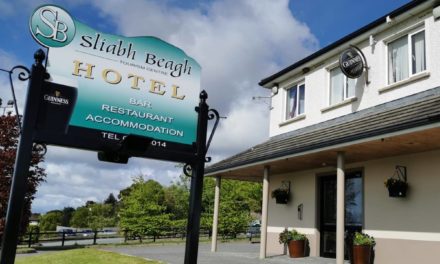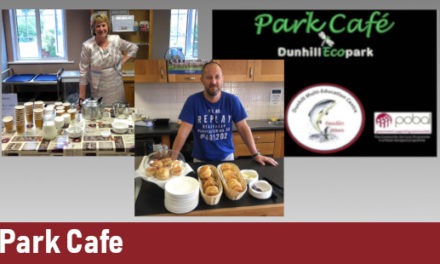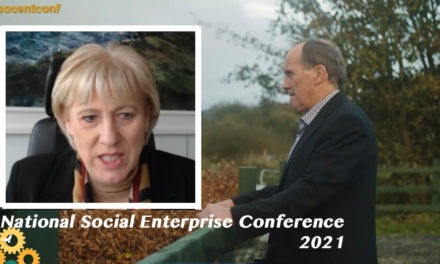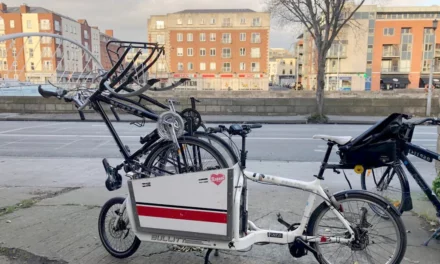Enactus DCU’s Dyslex.ie project aims to make it easier to read online content. But how does it work?
At a time when 6% of Irish university graduates are functionality illiterate (or have a low level of basic literacy), doing everything we can to make life a little bit easier becomes essential.
It wouldn’t stretch the imagination too far to suspect that at least some of that 6% are affected by dyslexia, which is increasingly becoming something that can be managed and helped by increased awareness, a push for accessible reading materials and some newly fledged technology.
Dyslex.ie is a Dublin City University Enactus project that definitely falls into that latter category. Here, project leader Kevin Cogan speaks to Kirsty Tobin – in an interview conducted in collaboration with Enactus – and explains Dyslex.ie’s background, telling us how he thinks the Google Chrome extension can make a difference.
Can you tell us about your project?
One in 10 people in the world today is affected by dyslexia. Take the 14,000 students in Dublin City University (DCU) as an example: on average, a staggering 1,400 students struggle to read and write accurately, often hindering them from achieving their full potential.
Dyslex.ie is here to tackle that problem head on. Dyslex.ie is a Google Chrome extension that helps dyslexic people to increase their reading speed, and reduces the number of errors while reading online content, by making the websites more accessible to the dyslexic community.
What social need does your project address?
Dyslex.ie aims to fill the need for more online resources for the dyslexic community. Currently there are few to none available or easily accessible. Dyslex.ie tackles all these issues.
What first stirred your interest in this area?
It began years ago in Transition Year. We were doing a mini company module where we had to create a product to sell. Three out of the four members in my group were dyslexic and one suggested we sell our own dyslexic-friendly books, as we had seen a company selling them.
We did research and found out what to do to make the books more accessible. However, we stumbled upon an issue: we discovered that each person’s dyslexia is different; while one person might like a light yellow background, another might like a light blue one instead. We could not overcome this issue – not on paper, anyway.
When I arrived at DCU to start my first year in computer science, I found the missing piece that was hindering Dyslex.ie from progress: the adaptability of computers. Now, each user could modify the screen’s appearance to their heart’s content. Dyslex.ie was reborn that day.
What prompted you or inspired you to get involved with Enactus?
I have had a passion to help people and to set up a business from a young age and, with Enactus DCU’s great reputation and success throughout the years, it was an obvious choice to get fully involved.
After spending a year in Enactus DCU, I realise it’s a lot more than just a social enterprise society – it’s a family. Seeing all the people who are just as passionate about social enterprise as I am is amazing. That’s the major reason I joined Enactus DCU.
What have you learned about social enterprise and community-focused entrepreneurship since starting this project?
Having been involved in social enterprise for a year, I more fully understand social problems and the effects that they have on the world and its inhabitants. These problems can sound terrifying, but I see them as a challenge that can be solved with innovation and collaboration. No problem is too big to be solved.
Why do you think social enterprise matters?
Without social enterprises, the world would be a different place today. Perhaps even a more unwelcoming one. Social enterprises make a huge difference to society, as they create a better future for everyone. It’s the small differences each social enterprise makes every day that make a massive impact in the long run.
Do you think you’ll work to develop social enterprises after graduation, or even continue to grow your Enactus project?
I definitely want to set up my own social enterprise when I graduate, as it goes hand in hand with being a computing student – our job is to solve problems with the use of technology.
However, I am only a first-year student so graduation is a distant thought for me. For the meantime, I hope to develop Dyslex.ie into a fully sustainable social enterprise, as well as trying to launch my other social projects for next year.
What advice would you give to students considering developing an Enactus project in the future?
Every project is a rollercoaster ride – you experience the up and down. It’s important that when you do hit the brick wall, you still persist, as setting up a business is hard work. If it was easy, then everyone would be an entrepreneur. However, when you overcome the brick wall, take just a moment to celebrate your achievement and then get back to work.





